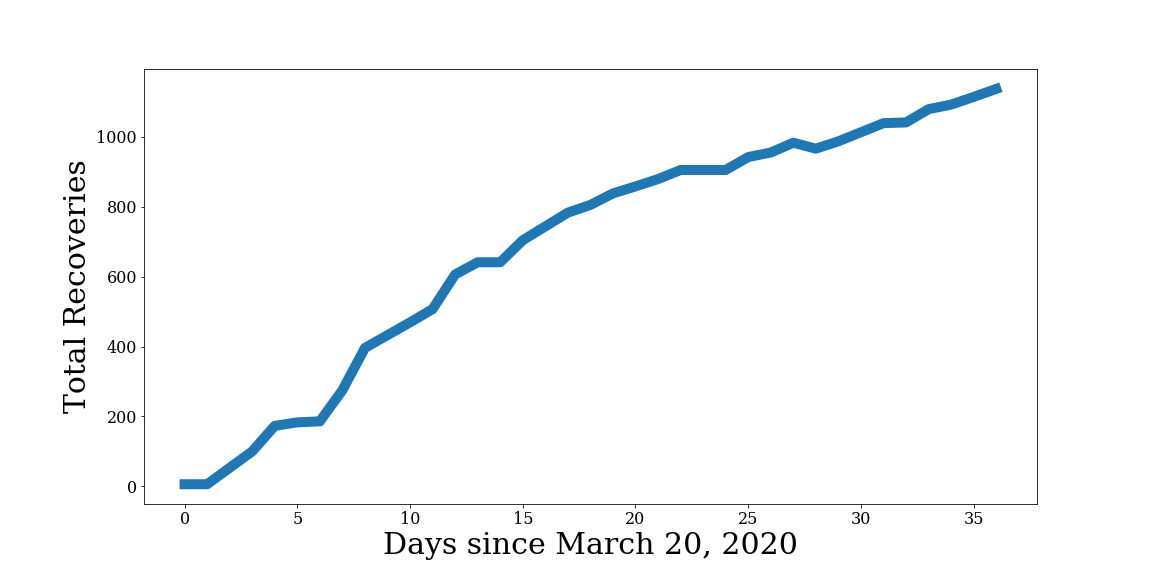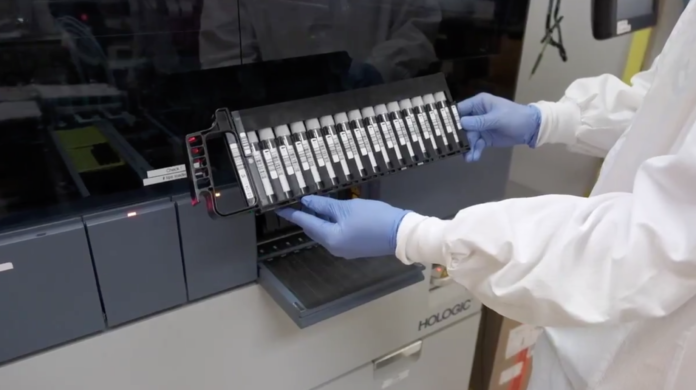Over half of all COVID-19 cases recorded in B.C. today have been declared recovered, and while stringent public health measures remain in place, the curve for new cases has, by and large, flattened.
Hundreds of patients still remain diagnosed with the virus, however, and outbreaks at long term care facilities, poultry processing plants, and prisons account for most of the remaining active cases in the province.
See also: B.C.’s COVID-19 curve has flattened, officials say due to stringent public health measures
Since the pandemic began to ramp up in B.C., there has been one change in criteria for declaring a COVID-19 patient fully recovered and one technical glitch in the Vancouver Coastal Health region that threw off recovery numbers for a week.
Originally, the nationwide approach to declaring any coronavirus patient recovered was two negative tests and ensuring the patient had no symptoms after 14 days of symptom onset.
Current criteria
On March 20th, provincial health officers across Canada agreed to change this criteria to requiring no symptoms after 10 days of isolation.
“For general workers, symptoms must be completely resolved before you can return to work, otherwise, stay home,” a Ministry of Health spokesperson told Victoria Buzz via email on April 1st after being asked about the new criteria.
“Occasionally people have [a] lingering dry cough after they have recovered from a cold/flu. [If] after a minimum of 10 days you have recovered, have no other symptoms and feel fine otherwise, you may return to work.”
Dr. Bonnie Henry added, in response to our question on the subject, that people who have a mild form of the illness were not found to be shedding a live virus after eight days of symptom onset, meaning they could not transmit the illness to others.
This information was gleaned after health officials learned more about the virus from data made available after widespread testing in South Korea.
On March 20th and 21st, B.C. had declared six people recovered from COVID-19 across the province. During the Ministry of Health’s next update on March 23rd, that number had jumped to 100.

At the moment, B.C. uses both the original and the updated criteria to determine recoveries on a case-by-case basis.
“We’re still using [the initial] criteria for those who have been hospitalized and for people who are immunocompromised because they can shed virus for longer periods of time,” said Dr. Henry.
However those who had a mild case of the virus and did not need hospitalization are considered recovered ten days after the onset of any symptoms.
“We have had people early on, particularly people who had to have two negative tests, and we found that they would go back and forth between negative and positive results,” added Dr. Henry, in explaining why two negative tests are no longer necessary for those who have a mild case of COVID-19.
Nevertheless Dr. Henry said on April 22nd that some people who have a mild version of the disease but whose symptoms progress and last longer than 10 days are not considered recovered from the virus until symptoms resolve completely.
Reporting glitches
Provincial health officials in B.C. rely on data coming from individual health regions and cluster outbreaks to make their daily case updates.
Two weeks ago, in the week of April 12th – 17th, people monitoring the number of cases, deaths, hospitalizations, and recoveries in the province noticed a strange pattern.
Vancouver Coastal Health region, one of the largest and hardest hit regions in B.C., had not been reporting new recoveries for several days as the number of recovered COVID-19 patients stood stagnant.
In a clarification last week, Dr. Henry said there was a point when Vancouver Coastal Health region was using an algorithm to report recoveries for patients with a mild case of the illness, and did not have a physician overseeing the reports.
Those technical glitches also accounted for an odd day of case numbers, as the number of recovered patients dropped from 983 to 966 between April 16th and 17th.
The wrongs have been righted, however, as health officials went back and recalculated the number of people who had actually recovered from the virus based on the criteria after 10 days of symptom onset, and on April 20th, reported 1,039 recoveries.
As of the time of publication, there are 1,190 people who have recovered from COVID-19 in B.C. out of 1,998 total cases.
103 people have died from the virus in the province, which means there are currently 705 active cases of novel coronavirus in B.C.
The next step now is to determine how many people have had COVID-19, whether they displayed symptoms of the virus or not, in an effort to determine to what extent people are immune to it.
Serological tests — blood tests that detect the antibodies produced in response to an infection — are needed in order to determine the level of immunity in the population.
As of now, there are no serology tests approved to be conducted in Canada, but Health Canada is in the process of assessing a number of applications for serological tests that are supported by appropriate evidence.
See all the latest updates about the global COVID-19 pandemic on Vancouver Island
The BCCDC has set up a 2019 novel coronavirus telephone information line at 1-833-784-4397 for those who have further questions about this disease.
Anyone concerned that they may have been exposed to, or are experiencing symptoms of the novel coronavirus, should contact their primary care provider, local public health office, or call 8-1-1.
The Province has also created the 1-888-COVID-19 line to connect British Columbians needing non-medical information about the coronavirus pandemic.
As of the time of publication, the total number of COVID-19 patients worldwide has risen to 3,064,830.
Over 211,600 people have died from the illness and 922,397 have made a full recovery.



